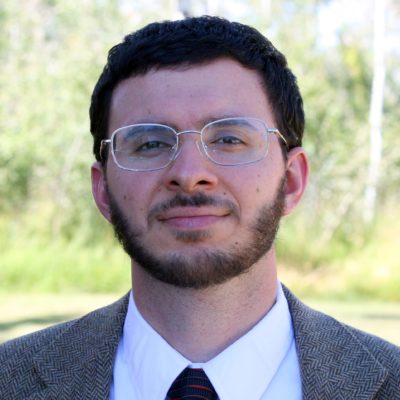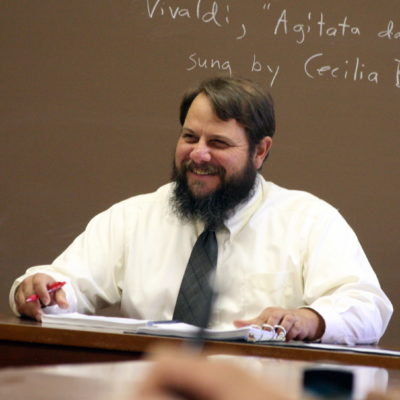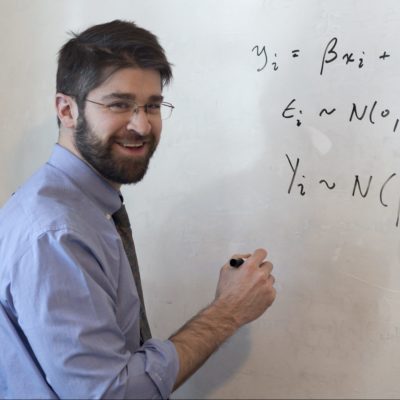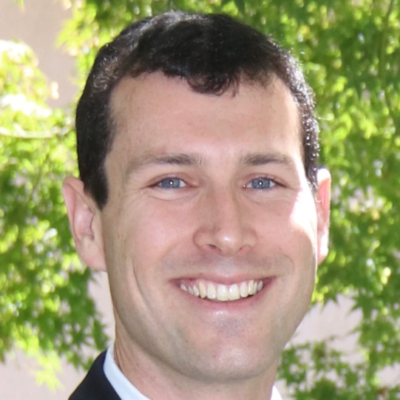"Pure mathematics is, in its way, the poetry of logical ideas."
-- Albert Einstein
Mathematics and Science
Mathematics:
In the “mixed sciences” made famous by the medieval quadrivium (Music and Astronomy), mathematics helps to give us insight into the natures of things. Even at its most abstract (Arithmetic and Geometry), it offers knowledge of the quantitative aspects of the real physical world. Moreover, its highly logical structure and freedom from the imprecision of material being makes it ideal for elementary training in reasoning, where the beauty of mathematics both inspires wonder and makes evident the human mind’s thirst for understanding. Mathematical knowledge is more than just an object of contemplation, also serving as a direct instrument of scientific inquiry, and an indirect means of seeking after the truth. As the Book of Wisdom declares: “Thou hast ordered all things in measure, and number, and weight” (Wis 11:21).
The Mathematics curriculum begins with Euclid’s Elements, the foundational text of mathematics in Western civilization. Building on this foundation, students examine the works of Apollonius and Archimedes on conic sections. And in their final semester, they investigate number theory, various attempts to unify the study of discrete and continuous quantity, Descartes’s analytic geometry, and fundamentals of the integral and differential calculus.
Science:
For ancient and medieval thinkers, “science” denoted any area of inquiry in which true, certain, and universal knowledge was achieved, making it equally applicable to such disparate disciplines as theology, philosophy, and mathematics. The more modern sense of the word, however, is reserved for an empirically-based knowledge of the workings of nature, as discerned through the experimental observation of phenomena. Given both the dominance of this understanding of the term and the frequent neglect of natural philosophy that accompanies it, it is important for our students to understand the domains proper to each kind of “science,” as well as to recognize and appreciate their true and intimate relation.
There are three different levels of scientific inquiry: that of natural history, in which particular data are gathered and provisionally organized; that of natural science, in which hypotheses and theoretical constructs are fashioned in the attempt to correlate these data; and that of natural philosophy, in which the data are subsumed by truly causal explanations of universal validity. The direct experience of the natural world through natural history greatly augments our sense of wonder, so essential for the intellectual life. Natural science instills in the mind a sense of the order of the universe. And natural philosophy ultimately leads the mind to the recognition of the First Principle: “The heavens declare the glory of God” (Ps 19:1). While each level has its own methodology, their unification is an important goal of liberal education.
The first two levels of inquiry are treated in the first three semesters of our Science curriculum. The third is studied both in our Philosophy sequence and in the final year of the Science curriculum, where students investigate the complementarity of natural science and philosophy.
Courses
The first of two semesters of field science, this course is an introduction to natural science through field study that puts students in direct contact with the local natural environment. Through the direct experience and methodical observation of the heavens, geological formations, flora, and fauna, observational skills are sharpened and a sense of wonder at nature and natural history is cultivated. Students spend much time outdoors, drawing and recording data in sketchbooks. Shorter scientific readings supplement the books listed below.
| Leopold | A Sand County Almanac |
| Sibley | Field Guide to the Birds of Western North America |
| Chartrand | Field Guide to the Night Sky |
Euclid’s Elements is the foundational text of mathematics in Western civilization. Without an understanding of this text, one cannot fully understand the most significant scientific and mathematical works of later eras, such as those by Galileo and Newton. This course studies Books I–VI, beginning with basic definitions, axioms, and common notions as established in Book I, and proceeding through introductory plane geometry, with a treatment of rectilinear figures (Books I–II) and circles (Books III–IV), as well as proportion theory, considered first in itself (Book V), then as applied to plane geometry (Book VI). Given the crucial role played by student-led demonstrations at the board, this semester and the following are skills classes.
| Euclid | Elements |
This course continues with Books XI–XIII of Euclid’s Elements, completing the geometrical works with a treatment of solid geometry and the method of exhaustion, and culminating in the investigation of the five Platonic solids. Building on this foundation, the course then engages selections from the works of Apollonius and Archimedes on conic sections.
| Euclid | Elements |
| Apollonius | Conics, Selections |
| Archimedes | The Quadrature of the Parabola |
This course gives students a formal foundation in the nature of mathematics, including its relationship to natural science and metaphysics. Following on previous courses’ focus on the mathematics of continuous quantity, the course begins by investigating discrete quantity through several important proofs in number theory. The course then turns to the modern conception of number, including rationals, irrationals, complex, algebraic, and transcendental numbers, and more generally, the modern effort to unify discrete and continuous mathematics, which gave rise to analytic geometry and the calculus. This unification makes possible the proof that several famous problems (e.g., doubling the cube), which were unsuccessfully attempted by the ancients, are in fact impossible to solve. These considerations allow for reflection on Euclid’s accomplishment, as well as the very nature of mathematics and axiomatic reasoning, in a much more profound way. This conversation is further deepened by St. Thomas’s reflections on the nature of mathematics. Students sharpen their mathematical reasoning skills and develop problem solving techniques through frequent exercises, and engage in discussions on the nature of numbers, the mathematical conception of logic, infinity, limits, and mathematical beauty.
| Courant | What is Mathematics? |
| St. Thomas Aquinas | Selections on Mathematics |
This course explores the mathematical methodology of empirical science through a consideration of the philosophical underpinnings of this methodology and through the study of probability and statistics. Students consider the processes of evaluating experimental evidence used to confirm or disconfirm testable hypotheses and learn to identify various fallacies in evidential reasoning.
| Bacon | Novum Organum, Selections |
| Fisher | “The Mathematics of a Lady Tasting Tea” |
| Selected Readings |
The second of the two semesters of field science, this course provides students with the opportunity to take up field studies with the analytical, quantitative approach of modern empirical science. The tools of statistical reasoning acquired in the preceding semester allow for a more rigorous, firsthand experience of the application of the scientific method to natural observation.
Having seen the method of modern science in action (SCI 301 and 302), students in the senior year pay closer attention to the relations between science, philosophy, and theology. Introductory readings in SCI 401 consider the relation between science and philosophy explicitly. The course traces the development of atomic theory from the ancients through Aquinas, Dalton and other 19th century experimentalists, Mendeleev, and progenitors of the 20th-century atomic and quantum-theoretical viewpoints. Apparent tensions between classical and modern views are resolved, and the contributions of both science and philosophy validated.
| Augros | “Reconciling Science with Natural Philosophy” |
| Feynman | The Character of Physical Law |
| Course Manual | Extracts from the ancient atomists, Aristotle, Aquinas, Dalton, Thomson, Gay-Lussac, Avogadro, Cannizarro, Mendeleev; various modern authors on the rise of atomic and quantum-physical ideas |
| Aquinas | De mixtione elementorum |
| Eddington | “The Two Tables” |
In this course, students continue to ponder developments in modern science and their philosophical ramifications, with special attention to biology. Topics addressed include the relation of biology to the physical sciences, basic cell theory and genetics, and evolutionary theory, considered in light of scientific, philosophical, and theological reasoning. Focus is maintained on the ultimate goal of achieving a coherent synthesis of faith and reason.
| Darwin | The Origin of Species, selections |
| Mayr | Toward a New Philosophy of Biology, selections |
| De Koninck | “The Lifeless World of Biology” |
| Dalrymple, Fairbanks, Behe, etc. | Selected papers |
| Bolin | “Darwin and Evolution” |
| St. Robert Bellarmine | Letter to the Reverend Foscarini |
| Pontifical Biblical Commission | On the Historical Character of Genesis 1-3, Letter to Cardinal Suhard |
| Pius XII | Humani Generis |
| International Theological Commission | Communion and Stewardship |
| St. John Paul II | Address to the Pontifical Academy of Sciences |
| Benedict XVI | Homilies and Addresses |





